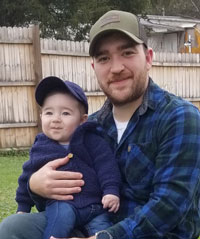Training & Conferences
TRAINING
The WV Family Planning Program will provide orientation and/or in-service training of all provider personnel, including the staff of service sites at least once per project period (with a refresher course (conducted by the program clinic contact) once per year.
The WV Family Planning Program clinic contact must have the full orientation and update training annually. While training will be conducted or arranged by the WV Family Planning Program, providers are responsible for maintaining updated records for clinic staff to show completion (such as certificates, confirmation of completion emails, etc.) of the required training. Clinic staff is/are responsible for completing training in the following areas on an annual basis:
State Reporting Requirements: Mandatory Reporting for Abuse, Rape, Incest, and Human Trafficking
(Legislative Mandate)
Notwithstanding any other provision of law, no provider of services under Title X of the Public Health Service Act shall be exempt from any State law requiring notification or the reporting of child abuse, child molestation, sexual abuse, rape, or incest.
Family Involvement and Coercion
(Legislative Mandate)
None of the funds appropriated in this Act may be made available to any entity under Title X of the Public Health Service Act unless the applicant for the award certifies that it encourages family participation in the decision of minors to seek family planning services and that it provides counseling to minors on how to resist attempts to coerce minors into engaging in sexual activities.
Training to Support Implementation of QFP
Providing Quality Family Planning Services (QFP) recommendations were developed by the Office of Population Affairs (OPA) and the Centers for Disease Control and Prevention (CDC). While not mandated per federal regulations, completion of training found in the Putting the QFP into Practice Series Toolkit supports successful provision of quality family planning services and is required by the WVFPP.
Note: The eLearning modules replace the previous Putting the QFP into Practice eLearning and webinar series as well as the Family Planning Basics eLearning.
https://rhntc.org/resources/putting-qfp-practice-series-toolkit
The following training is required once per project period:
Cultural competency: staff must consider the educational and cultural backgrounds of the individuals to whom they provide services including the LGBTQ community, persons with disabilities, and adolescents.
This training is provided by the Reproductive Health National Training Center.
Additional training and education materials can be located at The Reproductive Health National Training Center’s (RHNTC) website at, www.rhntc.org and at The National Clinical Training Center (NCTC) for Family Planning’s website at, https://www.ctcfp.org.
CONFERENCES
The WV Family Planning Program maintains a membership with the National Family Planning & Reproductive Health Association, www.nationalfamilyplanning,org, (NFPRHA). All clinical service sites in the program are also eligible for webinars, conferences, and information updates provided by NFPRHA.
The NCTC also offers an annual National Reproductive Health Conference (http://www.ctcfp.org/nrhc/), which clinic staff are encouraged to attend.
INFORMATION AND EDUCATION RESOURCES
Title X and the WV Family Planning Program follow the recommendations of the Centers for Disease Control and Prevention (www.cdc.gov), the U.S. Preventive Services Task Force (https://www.uspreventiveservicestaskforce.org/uspstf/), the American College of Obstetricians and Gynecologists (www.acog.org), the American Society for Reproductive Medicine (www.asrm.org), and other nationally recognized standards of care. Full clinical recommendations for the Family Planning Program can be located in the “QFP” or Providing Quality Family Planning Services: Recommendations from Centers for Disease Control and Prevention and the US Office of Population Affairs (QFP) - PDF and subsequent updates, Update: Providing Quality Family Planning Services — Recommendations from CDC and the U.S. Office of Population Affairs, 2015 and Update: Providing Quality Family Planning Services — Recommendations from CDC and the U.S. Office of Population Affairs, 2017.




Resources
- Family Planning Electronic Data System (FPEDS)
- FP Manuals and Forms
- Policy Statements and Memos
- National News
- Trainings and Conferences
- Information X Change Newsletters
- Outreach and Education
- Topics of Interest